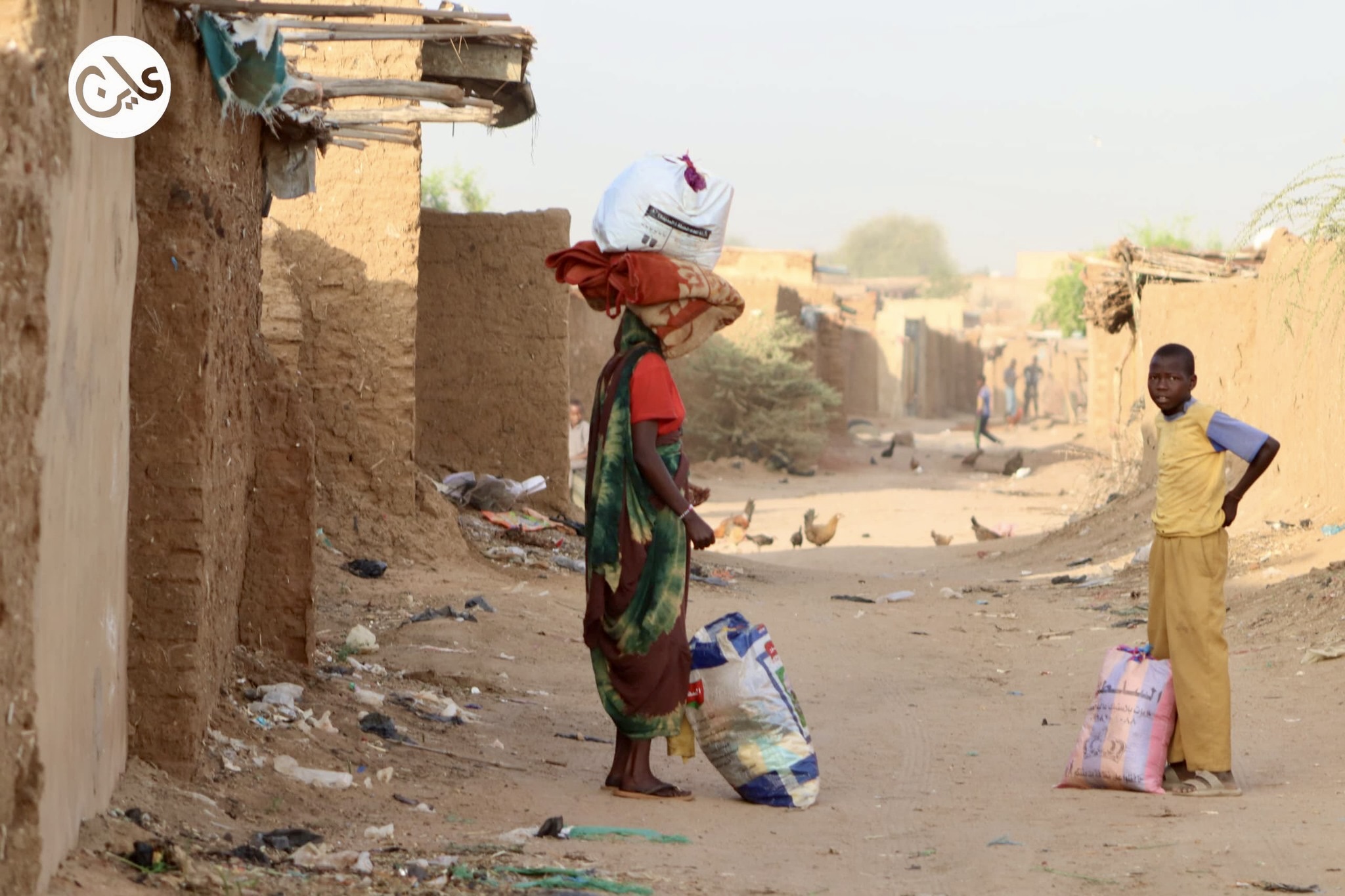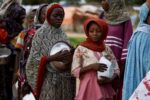War profiteers – High costs to flee El Fasher
22 September 2025
As the humanitarian situation deteriorated further, Alawiya Abkar and her family left El Fasher for Tawila locality in North Darfur State, embarking on a perilous displacement journey. Repeated calls from the paramilitary Rapid Support Forces to leave the city, with assurances of safe routes and transportation, encouraged her to embark on this adventure.
For 500 days the RSF have besieged the El Fasher area in an attempt to control the last remaining locality in Darfur outside of their control.The RSF have repeatedly pledged on their media platforms to secure safe passage for citizens wishing to leave El Fasher, the capital of North Darfur state. The reality on the ground, however, suggests these offers are fraught with dangers and exorbitant costs, representing another form of war profiteering for armed groups in the area.
Pledges to protect those fleeing the war in El Fasher have also been echoed by the Sudan Foundation Alliance, which includes the RSF and civilian and military forces, including the Sudan People’s Liberation Movement-North (SPLM-N) led by Abdelaziz al-Hilu, the Sudan Liberation Movement-Transitional Council (SLM-TC) led by Al-Hadi Idris, and the Sudan Liberation Forces Alliance (SLA-T), led by Taher Hajar.
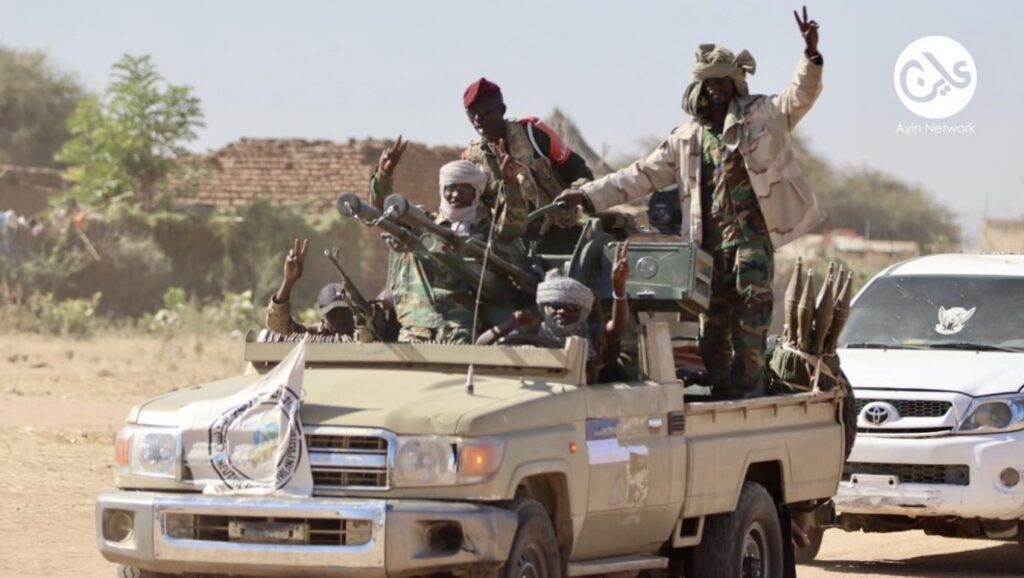
Protection rackets
A few kilometres from El Fasher, in the village of “Halat El Sheikh”, Alawiya encountered a reality different from what was advertised. In that area, the Rapid Support Forces (RSF) provided vehicles to transport the displaced to Tawila, a safe area under the control of the Sudan Liberation Movement / Army, led by Abdel Wahid Mohamed Nour. But the RSF only do this with a heavy price tag. Each person has to pay 500,000 Sudanese pounds (roughly $147)—a price the conflict-displaced can hardly afford.
According to Alawiya, the RSF have designated a route to exit west of El Fasher. The displaced leave on pack animals to reach Halat al-Sheikh village. From there, Rapid Support Forces fighters transport them to the Kafut area, where RSF vehicles are stationed to transport the displaced to Tawila, Mellit, or Korma, depending on their preference. But everything comes with a price.
When Alawiya reached Halat al-Sheikh with her sisters and mother, the total price for the trip to carry all of them was 2.5 million Sudanese pounds ($735). Collectively, they only had 300,000 Sudanese pounds ($88) between them. Eventually their brother was able to help them cover the costs and continue their journey to Tawila. “These are very large sums of money for us as citizens who fled an area under siege for more than a year,” Alawiya told Ayin. “It’s utterly incredible that they demand we leave our homes and then deport us for such a huge sum of money.” Alawiya’s account and others like it are corroborated by members of the El Fasher Resistance Committee who recently fled the violence to Tawila.
According to Hamza Al-Tahir, a director at the General Authority for Humanitarian Action, under the civilian authority of the Sudan Liberation Army Movement in Tawila, these transport expenses are only set to increase. “There are vehicles belonging to the Rapid Support Forces that transport those fleeing from El Fasher to Tawila for 150,000 pounds per person, but these amounts have risen to 500,000 pounds, and it is said that they have jumped to 600,000 pounds in the past few days,” Al-Tahir told Ayin. “These are huge sums [to pay], especially for families with several members.”
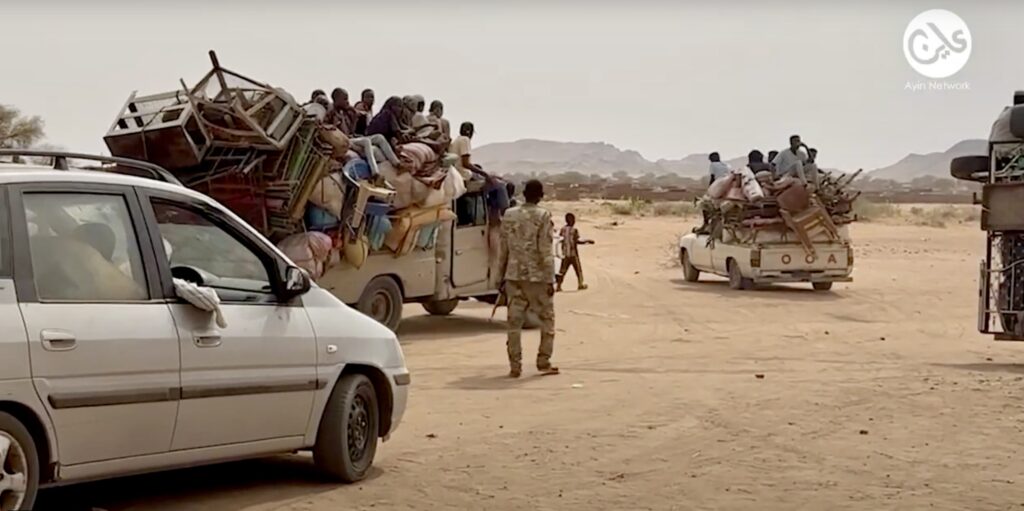
Denial
On the other hand, Fathi Mohammed, a leader in the Sudan Foundation Alliance, denied that his forces were collecting money to transport displaced people fleeing El Fasher to their destinations. “The alliance is providing all the means and supplies to ensure the safety of those leaving. Our forces are present, receiving civilians, providing them with the necessary protection and supplies of food, drink, medicine, and other humanitarian aid necessary to preserve their lives.”
RSF Spokesperson Mohamed al-Mukhtar concurs. “We are allowing civilians to leave El Fasher, and a civilian protection force has been formed. It is working in coordination with the humanitarian relief agency and a number of international organisations.” He added that the RSF have identified routes for exit via Karni and Shaqra to Tawila, Korma, and Mellit, depending on the destination requested by the displaced. This is being done in coordination with the Sudan Foundation Alliance forces, which include movements led by Taher Hajar and Al-Hadi Idris.
Mukhtar denies the existence of commercial vehicles used to transport civilians and claims they are available free of charge, recognising that these citizens do not have the funds to cover transport costs.
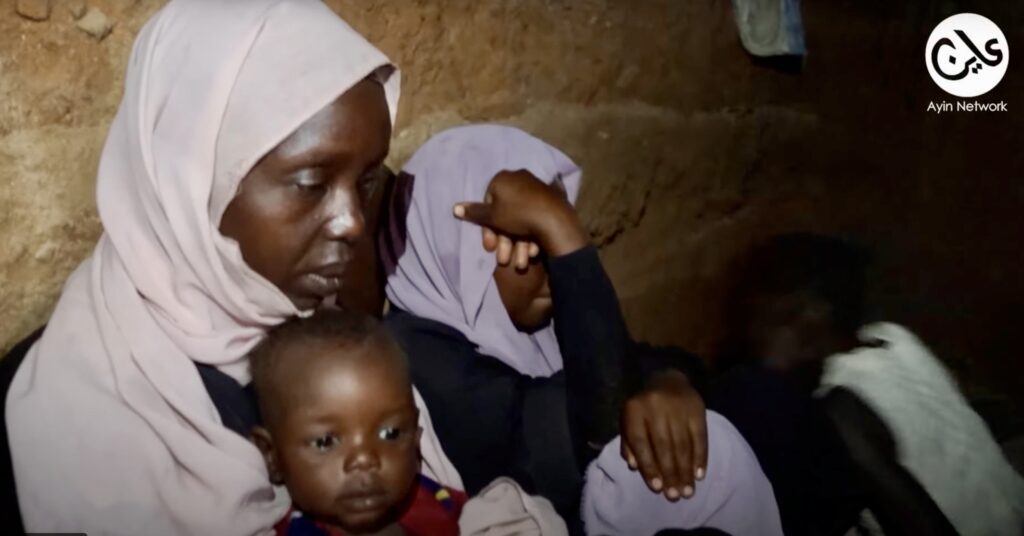
Leave or die
The United Nations in Sudan estimates that 260,000, half of whom are children, remain trapped within El-Fasher. Estimates for those remaining in neighbouring displacement camps, such as Abu Shouk, are simply unknown during this restive period. Currently, communication lines to those in areas such as Abou Shouk are cut off. The high levels of insecurity have prevented aid agencies from reaching those in need within the greater El-Fasher area for over a year.
While the RSF are petitioning El Fasher residents to leave the area, opportunities to escape the shelling, drone strikes, and skyrocketing market prices remain slim. For one, the RSF have built a roughly 22 km earthen wall around the city, leaving only two gaps for civilians to escape.
Despite these challenges, the RSF’s constant barrage of attacks – whether by direct shelling or drone strikes – has made remaining in El Fasher a daily life risk. “We had no choice; if we remained in El Fasher, we would have surely died,” says Awa Mohamed, a displaced mother from El Fasher who left earlier this year for the displacement camps in Tawila. “The shelling and gunfire would keep us awake, night and day. Finding food was becoming impossible; some days we just remained hungry and tired.” Life in Tawila is also difficult, Awa told Ayin. “We still struggle every day here, but we don’t regret the decision [to leave].”


